Attendant Care for Accident Victims
What is Attendant Care?
If you are injured in a car accident in Ontario, your standard policy of auto insurance carries a provision for access to attendant care benefits. The attendant care benefit can be used to pay for reasonable and necessary expenses that you or someone on your behalf incurs while assisting an injured person with personal care following a collision (i.e. cooking, feeding, and dressing etc.). The attendant care benefit also covers services provided by long-term care facilities including nursing homes or chronic care hospitals and can include assistance with medication management and emotional support, among other services.

attendant
In Shawnoo v Certas, 2014 ONSC 7014, the Court considered whether attendant care services could be provided remotely by way of electric communication to an injured person. In this case, the plaintiff suffered from a brain injury that caused her to experience erratic behaviour, forgetfulness, and suicidal ideation. As a result, her attendant care providers constantly checked-in with her by way of text messages, phone calls, and emails to remind her of appointments and to take her medications. The plaintiff also called and Skyped with her providers for moral and emotional support during difficult times.
The Court ultimately found that communication by electronic means qualified as attendant care under the category of “basic supervisory care” and found that the plaintiff lacked the ability to respond to an emergency, therefore, the constant checking-in by way of text message was found to be reasonable and necessary for the custodial care of the plaintiff. There is no doubt that the evolution of technology will serve to open the Court’s interpretation of what qualifies as attendant care in the future.
How Do I Qualify for Attendant Care
If you are injured in an Ottawa car accident and your injuries are classified as non-minor, you are eligible to receive attendant care benefits through your auto insurer. In order to assess whether attendant care services are reasonable and necessary, your insurance company will require you to be assessed by a registered nurse or occupational therapist who will complete an Assessment of Attendant Care Needs (Form 1) in relation to your current situation. The Form 1 will identify the types of assistance that you require and will include a calculation reflecting the monetary amount of assistance that is required per month.
The Form 1 is broken down into multiple categories covering different types of attendant care that is available, which includes: routine personal care; basic supervisory functions; and complex health/care and hygiene functions. The amount of attendant care that is payable is calculated by multiplying the hours of care needed in each of the above categories by the amounts payable per hour for the different categories of care.
How Much Attendant Care is Payable?
Under the current legislation, if your injuries are classified as non-catastrophic you are entitled to a maximum of $3,000 in attendant care per month and the benefit is payable for 5 years following your collision. It is important to know that the amount of funding available to you for attendant care benefits is lumped with your medical and rehabilitative benefits for a combined maximum of $65,000.
If your injuries have been classified as catastrophic, the amount of attendant care payable increases to a maximum of $6,000 per month, which is capped at a combined maximum (with your medical and rehabilitative benefits) of $1,000,000 payable over your lifetime.
The maximum monthly amount and time period that your attendant care benefits are payable can be increased with the purchase of optional benefits from your insurance company.
When Should There be an Assessment of Attendant Care Needs?
In most cases, a Form 1 should not be completed until your injuries are classified as non-minor because there is no attendant care benefit payable for “minor” injuries. Once you are eligible for the attendant care benefit, you should enlist the help of a nurse or occupational therapist immediately to conduct an assessment and complete a Form 1 on your behalf.
If you injuries are later deemed catastrophic in nature, you should have your needs re-assessed at that time. Additionally, if you require surgery or if your injuries result in a major change in your ability to function, you should have a re-assessment completed so that the amount of attendant care payable reflects your current situation.
Who Can Provide Attendant Care Services?
If your insurer has accepted that you require attendant care services, it is important to understand that there are certain criteria that must be met in order for you or your care provider to receive compensation for the care that has been provided.
In order to receive compensation for attendant care expenses, the expense must have been “incurred” and the care that was provided must be from a person who either: (a) did so in the course of the employment, occupation or profession in which he or she would ordinarily have been engaged, but for the accident; or (b) sustained an economic loss as a result of providing the goods or serves to the insured person. Accordingly, a family member cannot receive compensation for assisting you with your personal care unless they suffered an economic loss to provide the care (i.e. they had to quit their job or work less hours and are losing money).
Constant changes to the laws governing the attendant care benefit can make it confusing to understand whether you qualify for attendant care benefits and whether the assistance you receive meets the criteria for being reimbursed your attendant care expenses.
The lawyers at McNally Gervan LLP have extensive experience in assisting clients with obtaining the attendant care assistance that they require following a collision. If you are unsure of whether you qualify for this benefit contact one of our lawyers for a free consultation and to learn more about how you can access attendant care benefits from your insurance company.






Follow Us